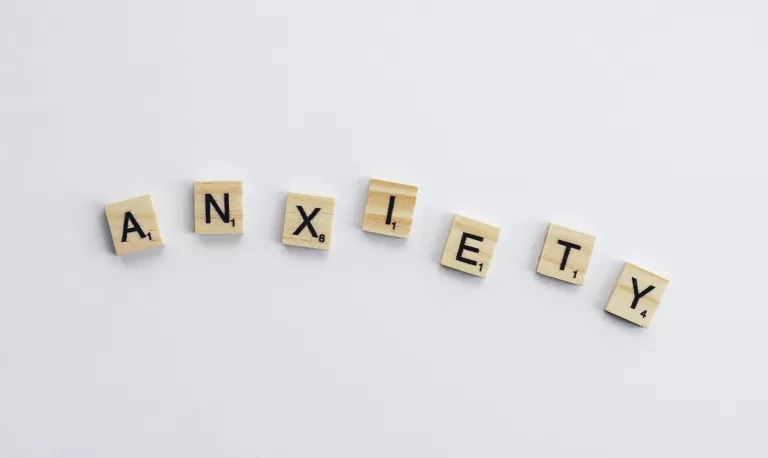Exercise is often celebrated for its role in maintaining and improving physical health. However, its impact on mental health is equally, if not more, profound. Regular physical activity is not only crucial for physical well-being but also plays a pivotal role in enhancing mental health. This article dives into the multifaceted mental health benefits of exercise, exploring how regular physical activity can improve mood, reduce symptoms of mental health disorders, enhance cognitive function, and foster overall emotional happiness.
1. Depression and Anxiety: exercise eases symptoms
One of the most well-documented mental health benefits of exercise is its ability to reduce symptoms of depression and anxiety. Regular physical activity has been shown to be as effective as medication for some individuals in managing mild to moderate depression. This is largely due to the release of endorphins, often referred to as “feel-good” hormones, which occur during exercise. These endorphins interact with receptors in the brain that reduce the perception of pain and trigger positive feelings in the body, similar to that of morphine.
Moreover, exercise also stimulates the production of serotonin, a neurotransmitter that regulates mood, sleep, and appetite. Increased serotonin levels contribute to feelings of well-being and happiness, which can significantly alleviate symptoms of depression and anxiety.
2. Improvement in Moodswings
Exercise is a powerful mood enhancer. Studies have consistently shown that individuals who engage in regular physical activity report higher levels of happiness and life satisfaction compared to those who lead sedentary lifestyles. This is partly due to the biological effects of exercise, such as the release of endorphins and serotonin, but also due to psychological factors. Achieving personal fitness goals, whether it’s running a certain distance, lifting a specific weight, or simply sticking to a regular workout routine, can provide a sense of accomplishment and boost self-esteem.
Additionally, exercise can serve as a valuable outlet for managing stress. Physical activity helps to lower cortisol levels, the body’s primary stress hormone, which in turn helps to reduce feelings of stress and anxiety. The focus required during exercise can also act as a form of mindfulness, helping individuals to stay present and alleviate worries about the past or future.
3. Increased Cognitive Function and Brain Health
Regular exercise has profound effects on cognitive function. It enhances brain health by promoting the growth of new neurons, improving the survival of existing neurons, and increasing overall brain plasticity—the brain’s ability to adapt and reorganize itself. These effects are particularly beneficial for memory, learning, and problem-solving skills.
Aerobic exercise, in particular, has been linked to improvements in executive function, which includes skills like working memory, flexible thinking, and self-control. Studies have shown that regular physical activity can slow the natural decline in these cognitive functions that occur with aging. This is why exercise is often recommended as a preventative measure against neurodegenerative diseases such as Alzheimer’s and other forms of dementia.
4. Boosted Self-Esteem and Body Image
For many people, regular exercise is a powerful tool for improving self-esteem and body image. Achieving fitness milestones, no matter how small, can provide a sense of accomplishment and boost confidence. As individuals progress in their fitness journey, they often experience improvements in their physical appearance, strength, and endurance, all of which contribute to a more positive self-image.
Moreover, exercise encourages a focus on what the body can do rather than solely on how it looks. This shift in perspective—from aesthetics to functionality—can be particularly empowering and help combat negative body image issues. Engaging in regular physical activity allows individuals to appreciate their bodies for their capabilities, which can lead to a healthier relationship with their physical selves.
5. Better Sleep Quality
Sleep is a crucial component of mental health, and exercise plays a significant role in improving sleep quality. Regular physical activity helps regulate sleep patterns by promoting deeper and more restful sleep. This is due to the impact of exercise on the body’s circadian rhythm, which is the internal clock that regulates sleep-wake cycles.
Exercise also helps to reduce insomnia by decreasing anxiety and depressive symptoms, which are often underlying causes of sleep disturbances. Moreover, the physical tiredness that results from exercise can make it easier to fall asleep and stay asleep through the night. Improved sleep quality, in turn, enhances overall mental health by reducing fatigue, irritability, and mood swings.
6. Increased Social Interaction and Support
Many forms of exercise provide opportunities for social interaction, which is another important aspect of mental health. Whether it’s joining a fitness class, participating in team sports, or simply going for a walk with a friend, exercise can help individuals connect with others and build supportive relationships. These social connections are vital for mental health, as they provide a sense of belonging and reduce feelings of loneliness and isolation.
Group exercise, in particular, has been shown to improve mental health more than exercising alone. The camaraderie and encouragement found in group settings can enhance motivation, accountability, and the overall enjoyment of physical activity. Additionally, being part of a community that shares similar fitness goals can provide a valuable support system, especially for individuals who may be struggling with mental health issues.
7. Stress Resilience and Emotional Resilience
Regular exercise not only reduces stress but also increases resilience to future stress. Engaging in physical activity teaches the body and mind to cope with and recover from stress more effectively. This is particularly important in today’s fast-paced world, where chronic stress is a common issue. Exercise helps build mental toughness and emotional resilience by challenging the body and mind to push through discomfort and persevere.
Furthermore, the routine of regular exercise provides a sense of structure and control, which can be particularly comforting in times of uncertainty. This sense of control can extend beyond physical fitness and help individuals feel more capable of managing other aspects of their lives, contributing to overall emotional resilience.
8. Prevention and Management of Mental Health Disorders
Exercise is increasingly being recognized as a valuable tool in both the prevention and management of mental health disorders. For individuals with mild to moderate depression, regular physical activity can be as effective as psychotherapy or medication. It can also serve as an adjunct treatment for more severe mental health conditions, such as major depressive disorder, anxiety disorders, and post-traumatic stress disorder (PTSD).
In addition to its direct effects on mood and anxiety, exercise helps address some of the physical symptoms associated with mental health disorders, such as fatigue, poor sleep, and low energy levels. By improving these physical symptoms, exercise can indirectly contribute to better mental health outcomes.
Practical Tips for Incorporating Exercise into Your Routine
Understanding the mental health benefits of exercise is the first step; the next step is incorporating it into your daily routine. Here are some practical tips:
- Start Small: If you’re new to exercise, start with small, manageable activities like walking or light stretching. Gradually increase the intensity and duration as you become more comfortable.
- Choose Activities You Enjoy: Exercise doesn’t have to mean going to the gym. Find activities you enjoy, whether it’s dancing, hiking, swimming, or playing a sport. The more you enjoy the activity, the more likely you are to stick with it.
- Set Realistic Goals: Setting achievable goals can provide motivation and a sense of accomplishment. Start with simple goals, such as exercising for 20 minutes a day, and gradually increase as you progress.
- Incorporate Social Interaction: Exercise with friends, join a class, or participate in a team sport. The social aspect of exercise can enhance the mental health benefits and make the activity more enjoyable.
- Make it a Habit: Consistency is key to reaping the mental health benefits of exercise. Try to make physical activity a regular part of your routine, whether it’s daily, several times a week, or according to a schedule that works for you.
Conclusion
Exercise is a powerful tool for improving and maintaining mental health. From reducing symptoms of depression and anxiety to enhancing cognitive function and promoting emotional resilience, the benefits of regular physical activity extend far beyond physical fitness. By incorporating exercise into your daily routine, you can improve your mood, boost self-esteem, and foster long-term mental well-being. Whether you’re looking to manage a mental health condition or simply enhance your overall quality of life, regular exercise can do a lot of good for you.
Disclaimer: The information in this article is for informational purposes only and is not medical advice. Consult a healthcare professional before making any changes to your diet, exercise, or lifestyle, particularly if you have pre-existing conditions. The author and website are not responsible for any adverse effects from using this information.
References:
- 1. Mikkelsen, K., Stojanovska, L., Polenakovic, M., Bosevski, M., & Apostolopoulos, V. (2017). Exercise and mental health. Maturitas, 106, 48-56. https://doi.org/10.1016/j.maturitas.2017.09.003
2. Robinson, L., Segal, J., & Smith, M. (n.d.). The mental health benefits of exercise. HelpGuide. Retrieved from https://www.helpguide.org/articles/healthy-living/the-mental-health-benefits-of-exercise.htm
3. Sharma, A., Madaan, V., & Petty, F. D. (2006). Exercise for mental health. Prim Care Companion J Clin Psychiatry, 8(2), 106. https://doi.org/10.4088/pcc.v08n0208a
4. Smith, P. J., & Merwin, R. M. (2021). The role of exercise in management of mental health disorders: An integrative review. Annals of Internal Medicine, 72, 45-62. https://doi.org/10.1146/annurev-med-060619-022943




